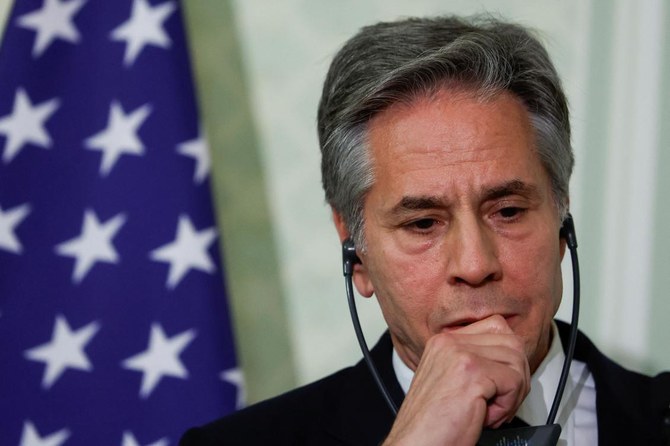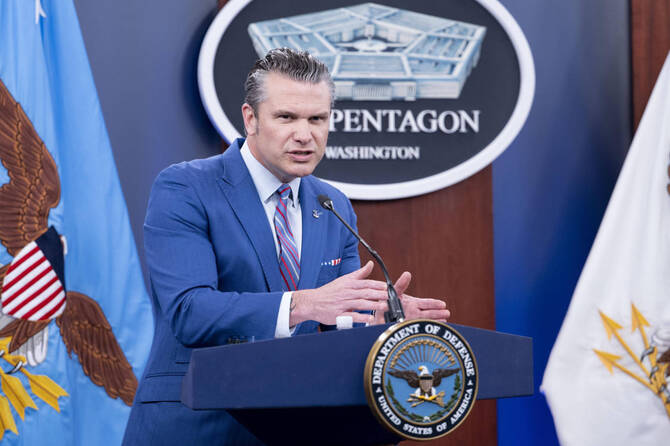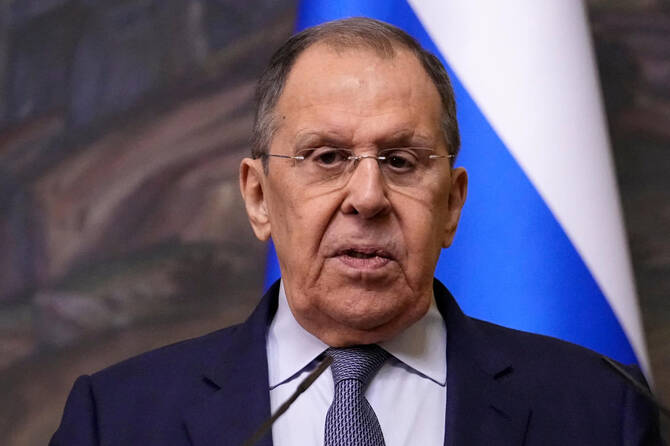TEL AVIV: United States Secretary of State Antony Blinken has arrived in Israel for what are expected to be fractious talks with Israeli Prime Minister Benjamin Netanyahu over the war in Gaza as public differences over the conflict have intensified.
It’s the final stop in Blinken’s sixth urgent diplomatic mission to the Middle East, in which he’s expected to hold meetings with Netanyahu and his war cabinet aimed at convincing them not to proceed with plans for a large-scale military offensive in the southern city of Rafah that many fear could make an already disastrous humanitarian crisis in Gaza even worse.
“A major military operation in Rafah would be a mistake, something we don’t support,” Blinken said Thursday in Cairo, where he met with top diplomats from Egypt, Jordan, Saudi Arabia, Qatar and the United Arab Emirates.
“And, it’s also not necessary to deal with Hamas, which is necessary.”
Instead, Blinken will present Netanyahu with alternatives for dealing with Hamas in Rafah in discussions that will continue next week when Israeli Defense Minister Yoav Gallant and a separate delegation of senior Israeli officials visit Washington. Netanyahu agreed to send the delegation in a Monday phone call with US President Joe Biden — their first conversation in a month amid the widening divisions.
Blinken’s brief visit to Israel, which was announced only Wednesday and was not part of his original Middle East itinerary, comes as top intelligence officials from the US, Israel, Egypt and Qatar were to meet in Doha to hammer out details of a proposed ceasefire-for-hostages deal. Qatar, and to a lesser extent Egypt, are the main interlocutors with Hamas, which has thus far rebuffed offers the negotiations have produced.
The United Nations Security Council is set to vote on a United States-sponsored resolution declaring that “an immediate and sustained ceasefire” in the Israel-Hamas war in Gaza is “imperative” to protect civilians and enable humanitarian aid to be delivered to more than 2 million hungry Palestinians.
US Ambassador Linda Thomas-Greenfield said she was optimistic that the new, tougher draft resolution would be approved Friday by the 15-member council.
The draft being put to a vote “determines” — which is a council order — “the imperative of an immediate and sustained ceasefire,” with no direct link to the release of hostages taken during Hamas’ Oct. 7 attack on Israel, which was in the previous draft. But it would unequivocally support diplomatic efforts “to secure such a ceasefire in connection with the release of all remaining hostages,” and emphasizes “the urgent need to expand the flow of humanitarian assistance to civilians in the entire Gaza Strip.”
Russia’s deputy UN ambassador Dmitry Polyansky said Moscow will not be satisfied “with anything that doesn’t call for an immediate ceasefire,” saying it’s what US Secretary of State Antony Blinken is pressing for and what “everybody” wants. He questioned the wording of the draft, asking, “What’s an imperative? I have an imperative to give you $100, but … it’s only an imperative, not $100.”
The Security Council has already adopted two resolutions on the worsening humanitarian situation in Gaza, but none calling for a ceasefire.






















